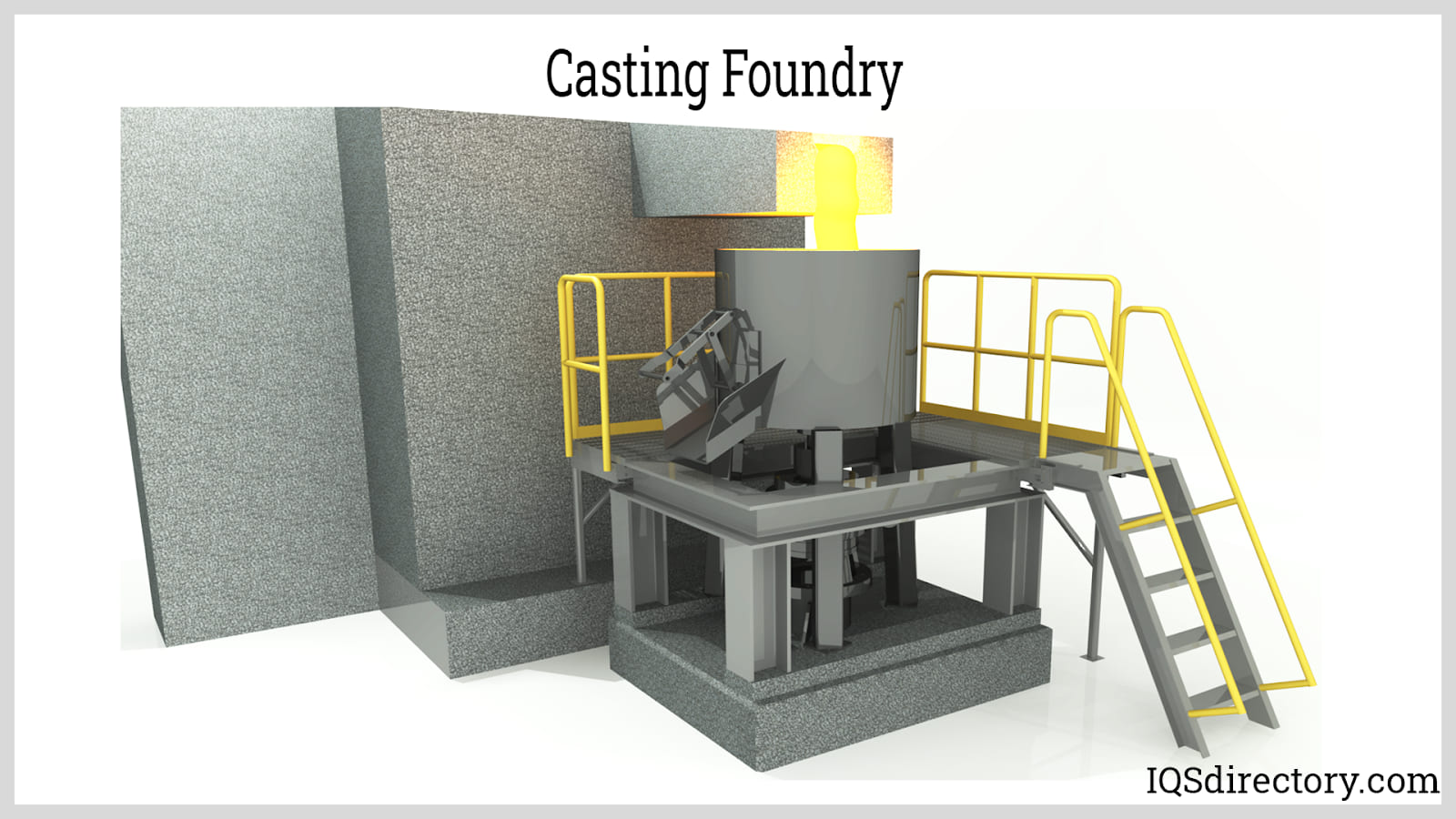Reviewing Aluminum Foundry Wisconsin and its role in metal casting
Understanding the Advantages and Innovations in the Aluminum Foundry Market
The Aluminum Foundry sector plays a necessary duty in contemporary manufacturing. Its light-weight homes notably enhance gas efficiency, especially in vehicle and aerospace industries. In enhancement, Aluminum's resistance to deterioration guarantees durability in various applications. As the industry evolves, developments such as sophisticated recycling and additive manufacturing are improving manufacturing approaches. Checking out these developments exposes not only the benefits but likewise the difficulties in advance for Aluminum shops in a swiftly changing market.
The Lightweight Advantage of Aluminum
Aluminum's light-weight nature uses substantial advantages across numerous sectors, especially in manufacturing and transport. Its reduced density permits the manufacturing of parts that are simpler to take care of and install, resulting in reduced labor prices and boosted performance. In the auto field, lighter automobiles add to improved gas economic situation and reduced discharges, lining up with global sustainability objectives. Likewise, in aerospace, the use of Aluminum decreases the total weight of airplane, which is vital for improving performance and reducing functional costs.
Furthermore, Aluminum's lightweight homes facilitate cutting-edge styles that were formerly impractical with heavier products. This versatility enables suppliers to create intricate shapes and frameworks while maintaining structural integrity. Generally, the light-weight advantage of Aluminum not only enhances product efficiency yet additionally drives developments in modern technology and design, making it a favored product in various applications.
Rust Resistance and Durability
The Aluminum Foundry industry is renowned for generating materials with premium deterioration resistance, making them suitable for numerous applications. This residential property, incorporated with boosted structural stability, adds to the resilient efficiency advantages that Aluminum components offer. As a result, markets progressively depend on Aluminum to fulfill requiring ecological problems without endangering quality.
Superior Deterioration Resistance
While various metals face substantial obstacles from environmental elements, Aluminum attracts attention for its exceptional rust resistance, making it a favored option in several applications. This residential property is largely as a result of an all-natural oxide layer that develops on the Aluminum surface, providing an obstacle against wetness and corrosive agents. Unlike various other steels that may rust or weaken with time, Aluminum preserves its stability even in harsh atmospheres, such as industrial setups or seaside areas. In addition, its lightweight nature integrated with rust resistance makes it optimal for applications in aerospace, automotive, and marine markets. In general, Aluminum's phenomenal durability not only boosts product longevity however likewise decreases maintenance prices, presenting an engaging benefit for producers and customers alike.
Enhanced Architectural Integrity
Designers and developers increasingly identify the significance of enhanced architectural stability in modern applications, where both rust resistance and resilience are crucial. Aluminum alloys, recognized for their lightweight residential properties, additionally exhibit outstanding resistance to rust, making them appropriate for extreme atmospheres. The ingenious strategies utilized in the Aluminum Foundry industry contribute considerably to generating elements with boosted resilience. Advanced casting procedures and alloy make-ups are tailored to fulfill details efficiency demands, making certain that frameworks can endure severe problems without compromising honesty. Additionally, surface area therapies and finishings boost the lifespan of Aluminum items, additionally mitigating degeneration with time. This emphasis on enhanced structural stability not only extends the use of materials however likewise decreases upkeep prices, strengthening Aluminum's placement as a product of selection in numerous sectors.
Long-lasting Efficiency Perks
Resilient performance in Aluminum components is mostly credited to their exceptional corrosion resistance and longevity. Unlike several steels, Aluminum naturally forms a protective oxide layer, which prevents corrosion and degeneration in numerous settings, including industrial and aquatic setups. This intrinsic property considerably expands the life-span of Aluminum items, minimizing upkeep and replacement costs. On top of that, the light-weight nature of Aluminum improves its applicability across sectors without jeopardizing stamina. The product's resistance to put on and tear likewise adds to its dependability in requiring applications, making it an optimal option for automotive, aerospace, and building and construction markets. As markets increasingly focus on sustainability and durability, Aluminum's performance advantages line up with modern design requirements, strengthening its function in innovative production processes.
Ecological Impact and Sustainability
 As the Aluminum Foundry industry progresses, it significantly focuses on ecological influence and sustainability, recognizing the need for accountable techniques despite climate modification. Initiatives to reduce waste and energy intake go to the forefront, with many factories embracing recycling efforts to redeem Aluminum scrap. This not just decreases raw product usage however likewise notably cuts down energy expenditure, as recycled Aluminum needs just a fraction of the energy compared to primary manufacturing.
As the Aluminum Foundry industry progresses, it significantly focuses on ecological influence and sustainability, recognizing the need for accountable techniques despite climate modification. Initiatives to reduce waste and energy intake go to the forefront, with many factories embracing recycling efforts to redeem Aluminum scrap. This not just decreases raw product usage however likewise notably cuts down energy expenditure, as recycled Aluminum needs just a fraction of the energy compared to primary manufacturing.Developments in discharges regulate technologies are being implemented to decrease air contaminants, aligning operations with more stringent ecological policies. Shops are also checking out alternate power resources, such as solar and wind, to power their facilities sustainably. By cultivating partnership with stakeholders, the industry intends to create ingenious solutions that boost eco-friendly stewardship. Jointly, these efforts highlight a commitment to decreasing the Aluminum Foundry's carbon footprint while promoting a circular economic situation within the production sector.
Advanced Production Techniques
 Changing manufacturing procedures, the Aluminum Foundry sector is progressively integrating sophisticated manufacturing strategies to improve click here for more info effectiveness and precision. Techniques such as computer system numerical control (CNC) machining and additive production have become crucial elements in enhancing manufacturing workflows. CNC machining permits high-precision component fabrication, significantly lowering material waste and manufacturing time. On the other hand, additive production opens up new avenues for complicated geometries and lightweight layouts that were formerly difficult to attain.
Changing manufacturing procedures, the Aluminum Foundry sector is progressively integrating sophisticated manufacturing strategies to improve click here for more info effectiveness and precision. Techniques such as computer system numerical control (CNC) machining and additive production have become crucial elements in enhancing manufacturing workflows. CNC machining permits high-precision component fabrication, significantly lowering material waste and manufacturing time. On the other hand, additive production opens up new avenues for complicated geometries and lightweight layouts that were formerly difficult to attain.In addition, the deployment of automation and robotics in Aluminum factories improves procedures, minimizes human error, and boosts employee security. These modern technologies facilitate a more receptive manufacturing environment, enabling producers to adjust rapidly to market demands. The combination of advanced simulation software additionally boosts the design and testing phases, resulting in premium product quality. Collectively, these techniques not only enhance operational effectiveness however also foster advancement, placing the Aluminum Foundry market at the leading edge of contemporary manufacturing.
Innovations in Reusing Procedures
The Aluminum Foundry market is not only advancing in making strategies but is likewise his comment is here making significant strides in reusing processes. Advancements are emerging to enhance the performance of reusing methods, lowering power usage and improving sustainability. Advanced arranging modern technologies, such as automatic optical sorting, enable the recognition and separation of Aluminum from other products with high precision. This leads to a greater quality of recycled Aluminum, which is essential for keeping the stability of the end products.
Closed-loop recycling systems are being implemented, enabling manufacturers to recycle Aluminum scrap within their own manufacturing procedures. This lessens waste and promotes a round economic climate. In addition, research study into new recycling strategies, such as hydrometallurgical processes, provides the potential for recuperating Aluminum from intricate waste streams. These developments not just add to minimizing the carbon impact of the Aluminum Foundry sector but likewise bolster its economic viability in a significantly ecologically aware market.
Applications Throughout Numerous Industries
Many sectors are significantly recognizing the adaptability and benefits of Aluminum Foundry products, resulting in prevalent applications throughout fields such as automotive, aerospace, building, and customer items. In the automotive industry, Aluminum castings add to lightweight automobile styles, improving gas effectiveness and performance. Aerospace manufacturers use Aluminum elements for their strength-to-weight proportion, important for aircraft structures and components.
In building, Aluminum is favored for its longevity and resistance to deterioration, making it excellent for window frames, roofing, and structural assistances. Consumer items likewise take advantage of Aluminum Foundry products, as seen in cookware, electronics, and packaging, where lightweight and recyclable materials are important.
The adaptability of Aluminum Foundry strategies allows for exact specifications and elaborate check my blog designs, accommodating the varied requirements of these markets. Therefore, Aluminum Foundry products are coming to be indispensable to modern-day manufacturing processes across numerous sectors.
Future Fads in Aluminum Foundries
As sectors continue to evolve, Aluminum factories are poised to embrace several vital patterns that guarantee to enhance performance and sustainability. One famous trend is the raising fostering of digital technologies, consisting of automation and expert system, which improve procedures and boost high quality control. Furthermore, the push in the direction of sustainable methods is leading foundries to spend in recycling modern technologies, substantially minimizing waste and power consumption.
 One more arising fad is using sophisticated alloys and materials, satisfying the expanding demand for light-weight and sturdy components across different fields (Aluminum Foundry). The integration of additive manufacturing techniques is anticipated to transform component style, providing modification and reducing lead times.
One more arising fad is using sophisticated alloys and materials, satisfying the expanding demand for light-weight and sturdy components across different fields (Aluminum Foundry). The integration of additive manufacturing techniques is anticipated to transform component style, providing modification and reducing lead times.Collaboration with research organizations is also expected to drive development, as foundries seek to create brand-new procedures and products. Aluminum Foundry. Jointly, these patterns suggest a transformative future for the Aluminum Foundry market, lining up with wider goals of sustainability and effectiveness
Regularly Asked Concerns
What Are the Normal Costs Connected With Aluminum Foundry Production?
The common expenses related to Aluminum Foundry production consist of raw products, labor, power, tools maintenance, and overhead expenses. These factors jointly affect the overall monetary investment required for efficient Aluminum spreading procedures.
Exactly How Does Aluminum Compare to Various Other Steels in Toughness?
Aluminum, while lighter than numerous metals, exhibits impressive strength-to-weight proportions. Compared to steel, Aluminum is less strong yet supplies exceptional corrosion resistance, making it a desirable selection in applications where weight and durability are necessary.
What Security Steps Are in Area in Aluminum Foundries?
Precaution in Aluminum foundries generally consist of obligatory individual protective tools, ventilation systems to regulate fumes, regular devices maintenance, training programs for staff members, and adherence to stringent safety guidelines to decrease threats related to liquified metal handling.
How Is Quality Assurance Managed in Aluminum Casting Processes?
Quality control in Aluminum spreading processes entails rigorous assessments at various phases, including raw material analysis, process surveillance, and final item screening. Strategies such as analytical process control and non-destructive screening guarantee adherence to market requirements.
What Accreditations Are Very Important for Aluminum Foundry Vendors?
The value of certifications for Aluminum Foundry distributors consists of ISO 9001 for quality monitoring, ISO 14001 for environmental administration, and industry-specific criteria like ASTM and SAE, guaranteeing conformity, safety and security, and reliability in making procedures.
The Aluminum Foundry market plays an important function in modern production. The Aluminum Foundry industry is renowned for producing products with superior rust resistance, making them excellent for various applications. Changing production procedures, the Aluminum Foundry sector is increasingly integrating sophisticated production strategies to boost performance and accuracy. The Aluminum Foundry industry is not only advancing in manufacturing techniques but is likewise making considerable strides in reusing processes. As markets proceed to evolve, Aluminum foundries are poised to embrace a number of key fads that assure to enhance efficiency and sustainability.